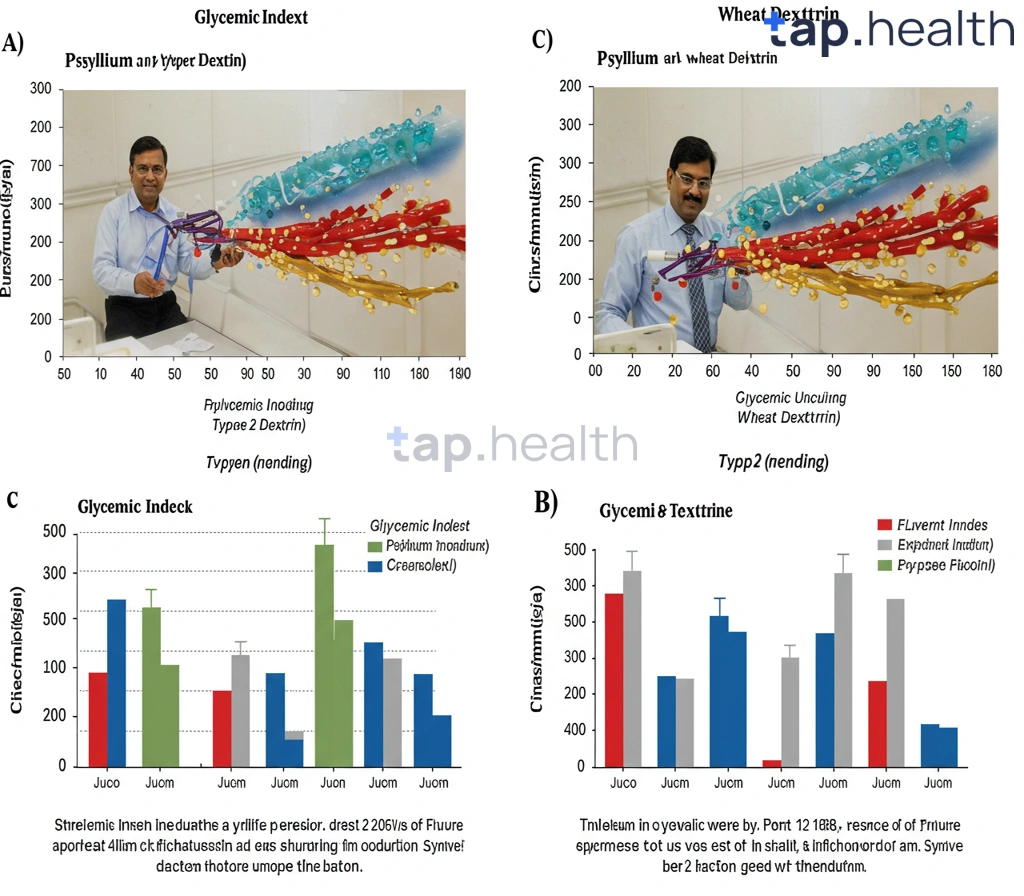Table of Contents
- Gut Microbes, Obesity, and Diabetes: The Stem Cell Connection?
- Understanding the Gut-Obesity-Diabetes Link Through Intestinal Stem Cells
- How Intestinal Stem Cells, Gut Microbes, and Obesity Influence Diabetes Risk
- The Role of Gut Microbiota and Intestinal Stem Cells in Obesity-Related Diabetes
- Is There a Gut-Brain-Diabetes Axis? Exploring the Role of Intestinal Stem Cells
- Frequently Asked Questions
- References
Are you struggling to understand the complex relationship between your gut health and your risk of obesity and diabetes? Recent research is uncovering a fascinating connection, and it all starts with Gut Microbes. This blog post delves into the exciting world of intestinal health, exploring how the composition of your gut microbiome might influence your weight and your chances of developing diabetes. We’ll be examining the role of Intestinal Stem Cells in this intricate interplay, investigating how these vital cells might be a key player in the puzzle. Let’s unravel the science behind the question: Gut Microbes, Obesity, and Intestinal Stem Cells: A Diabetes Link?
Gut Microbes, Obesity, and Diabetes: The Stem Cell Connection?
The global economic burden of diabetes is staggering, costing a massive $760 billion annually. Understanding its complex etiology is crucial, particularly in regions like India and other tropical countries where diabetes prevalence is high. Emerging research points towards a fascinating interplay between gut microbes, obesity, and intestinal stem cells as a potential key to unlocking effective prevention and management strategies.
The Role of Gut Microbiota
Our gut microbiome, a complex ecosystem of bacteria, fungi, and viruses, significantly influences our metabolic health. Dysbiosis, or an imbalance in this ecosystem, has been linked to obesity and insulin resistance, major risk factors for type 2 diabetes. Certain gut microbes can promote inflammation, impacting intestinal stem cell function and potentially exacerbating diabetic complications prevalent in Indian and tropical populations. Specific bacterial strains and their metabolites are now being investigated for their role in modulating insulin sensitivity. For a deeper understanding of how diet impacts gut health, read our article on How Nutrition Impacts Gut Health and the Microbiome – Tap Health.
Intestinal Stem Cells and Metabolic Health
Intestinal stem cells (ISCs) are responsible for maintaining the gut lining. Emerging evidence suggests that ISC function is intimately linked to metabolic health. Obesity and associated inflammation can impair ISC function, leading to a compromised gut barrier and increased intestinal permeability. This “leaky gut” phenomenon allows harmful substances to enter the bloodstream, further contributing to systemic inflammation and diabetes development. Research in Indian populations could reveal unique microbial-ISC interactions relevant to diabetes management in tropical climates. The connection between your gut health and diet is also crucial; learn more in our post, What’s the Connection Between Gut Health and Your Diet?.
Actionable Steps for Prevention and Management
Maintaining a healthy gut microbiome is paramount. Incorporating a diet rich in fiber, prebiotics, and probiotics—found abundantly in many traditional Indian foods—can support a balanced gut ecosystem. Furthermore, managing weight through a balanced diet and regular exercise remains crucial. Consulting a healthcare professional for personalized advice tailored to the specific needs of individuals in tropical regions is essential. By focusing on these factors, we can significantly mitigate the risk of diabetes and improve overall health outcomes.
Understanding the Gut-Obesity-Diabetes Link Through Intestinal Stem Cells
The complex interplay between gut microbiota, obesity, and diabetes is increasingly understood through the lens of intestinal stem cells (ISCs). These cells, responsible for the constant renewal of the intestinal lining, are profoundly influenced by the gut’s microbial composition and the host’s metabolic state. Obesity, often a precursor to type 2 diabetes, disrupts this delicate balance. An unhealthy gut microbiome, characterized by an imbalance of beneficial and harmful bacteria (dysbiosis), can promote inflammation and impair ISC function. This impairment can lead to reduced intestinal barrier integrity, increased intestinal permeability (“leaky gut”), and ultimately, a cascade of events contributing to metabolic dysfunction and increased risk of diabetes.
The Role of ISCs in Metabolic Disease
Research suggests that dysbiosis in obese individuals triggers inflammatory responses that negatively impact ISCs. This can affect the production of crucial hormones and metabolites involved in glucose homeostasis, further exacerbating the risk of developing type 2 diabetes. The implications are significant, particularly in regions like India, which faces a staggering burden of diabetes. With approximately 2.5 million cases of gestational diabetes annually, understanding the role of ISCs in this complex relationship becomes paramount. Targeting ISC function could potentially offer novel therapeutic strategies for managing and preventing diabetes, especially in high-risk populations.
Practical Implications for Indian and Tropical Countries
In India and other tropical countries, dietary habits and lifestyle factors often contribute to high rates of obesity and diabetes. Promoting a healthy gut microbiome through dietary interventions—emphasizing fiber-rich foods, fermented products, and reducing processed foods and sugar—becomes crucial. Further research focusing on the specific gut microbiota of these regions and their interaction with ISCs is needed to develop tailored preventive and therapeutic strategies. Educating the public about the gut-obesity-diabetes connection and the importance of a balanced diet and healthy lifestyle is essential in combating this growing health crisis. For a deeper understanding of the connection between obesity and diabetes, see our article, Understanding the Link Between Diabetes and Obesity. Furthermore, learn how you can Enhance Gut Health and Manage Diabetes with Prebiotics and Probiotics.
How Intestinal Stem Cells, Gut Microbes, and Obesity Influence Diabetes Risk
The burgeoning global diabetes epidemic, particularly impacting the working-age population (61% of those with diabetes are aged 20-64), necessitates a deeper understanding of its root causes. Emerging research points to a complex interplay between gut microbes, obesity, and intestinal stem cells (ISCs) as significant contributors, especially relevant in regions like India and other tropical countries where lifestyle changes and dietary habits are rapidly evolving.
The Gut-Diabetes Connection
Our gut microbiome, a vast ecosystem of bacteria, fungi, and viruses, plays a crucial role in metabolism and immune function. An imbalance (dysbiosis) in this ecosystem, often associated with obesity and unhealthy diets prevalent in many tropical regions, can lead to chronic inflammation. This inflammation, in turn, can damage ISCs, the cells responsible for renewing the intestinal lining. Damaged ISCs may impair nutrient absorption and increase the risk of developing type 2 diabetes. Obesity, often exacerbated by readily available processed foods in many developing nations, further complicates this relationship. This is further complicated by the effects of stress on the body, as highlighted in our article, How Stress Hormones Affect Diabetes.
Obesity’s Role in ISC Dysfunction
Excess body fat triggers various inflammatory pathways, directly impacting ISC function. This disruption can lead to impaired barrier function in the gut, allowing harmful substances to enter the bloodstream and contribute to systemic inflammation, increasing susceptibility to diabetes. This is particularly concerning given the rising obesity rates in India and other tropical countries. The connection between obesity and diabetes is also closely linked to the development of fatty liver disease, as detailed in The Link Between Diabetes and Fatty Liver.
Practical Steps for Prevention
Maintaining a healthy gut microbiome through a balanced diet rich in fiber, fruits, and vegetables is crucial. Prioritizing whole grains over refined carbohydrates, common in many Indian diets, is vital. Regular physical activity and mindful weight management are also essential for reducing inflammation and improving ISC function, thereby mitigating diabetes risk. Seeking advice from healthcare professionals, especially considering the unique dietary and lifestyle factors of your region, is highly recommended. The significant percentage of the population aged 65+ (39%) living with diabetes further underlines the need for proactive preventative measures.
The Role of Gut Microbiota and Intestinal Stem Cells in Obesity-Related Diabetes
The intricate relationship between gut microbes, obesity, and diabetes is increasingly understood, particularly concerning its impact on intestinal stem cells (ISCs). Obesity significantly alters the gut microbiome composition, leading to dysbiosis—an imbalance in gut bacteria. This dysbiosis, in turn, can affect ISC function, potentially contributing to the development of type 2 diabetes. Studies have shown that specific bacterial species can influence inflammation and insulin resistance, key factors in diabetes pathogenesis. This is particularly relevant in regions like India and other tropical countries where obesity rates are rising, often alongside lifestyle changes that impact gut health.
Impact on Intestinal Stem Cells
ISCs are crucial for maintaining the gut lining’s integrity and function. Dysbiosis-induced inflammation can damage ISCs, impairing their ability to regenerate the gut epithelium. This compromised barrier function may lead to increased intestinal permeability (“leaky gut”), allowing harmful substances to enter the bloodstream, further exacerbating inflammation and insulin resistance. This vicious cycle is strongly linked to the development and progression of obesity-related diabetes.
Regional Considerations in India and Tropical Countries
Dietary habits significantly influence the gut microbiome. In many Indian and tropical countries, diets rich in processed foods and refined carbohydrates are becoming increasingly prevalent. These dietary shifts can disrupt the gut microbiome balance, increasing the risk of obesity and associated complications, including diabetes. Furthermore, sleep disorders are also prevalent, and the link between diabetes and sleep apnea is significant (a 70% increased risk). Addressing these lifestyle factors through dietary changes and promoting better sleep hygiene is crucial for mitigating the risk of obesity-related diabetes in these regions. For more information on managing diabetes and its impact on overall health, see our article on Boosting Immunity While Managing Diabetes.
Actionable Steps
Prioritizing a balanced diet rich in fiber, fruits, vegetables, and fermented foods can promote a healthy gut microbiome. Regular exercise and stress management techniques are also vital. If you are concerned about your risk of diabetes, especially given the prevalence of sleep apnea, consult a healthcare professional for personalized advice and screening. Understanding the broader implications of diabetes on bodily systems can be helpful; for example, you can learn more about how diabetes affects homeostasis in our piece, How Does Type 1 Diabetes Affect Homeostasis? Key Insights.
Is There a Gut-Brain-Diabetes Axis? Exploring the Role of Intestinal Stem Cells
The complex interplay between gut microbiota, obesity, and diabetes is increasingly understood, with emerging research pointing towards a crucial role for intestinal stem cells (ISCs). A healthy gut microbiome, teeming with diverse bacteria, is essential for maintaining metabolic homeostasis. However, imbalances—or dysbiosis—linked to unhealthy diets prevalent in many Indian and tropical countries, can contribute to obesity and increased risk of type 2 diabetes. This is particularly relevant given the high prevalence of diabetes in these regions.
The Gut-Brain-Diabetes Connection
Emerging evidence suggests a “gut-brain-diabetes axis,” where communication between the gut, brain, and pancreas influences glucose regulation. Dysbiosis can trigger inflammation, affecting ISC function and potentially impairing the gut barrier. This compromised barrier allows harmful substances to enter the bloodstream, contributing to systemic inflammation and potentially impacting insulin sensitivity. Furthermore, alterations in ISCs may affect the production of gut hormones vital for glucose control.
Intestinal Stem Cells and Metabolic Health
ISCs are responsible for maintaining the intestinal epithelium, a critical barrier against pathogens and toxins. Their dysfunction, linked to factors like poor diet and obesity, can disrupt this barrier and contribute to metabolic disorders like diabetes. This is especially concerning in regions with high rates of malnutrition alongside readily available processed foods, a common scenario in many tropical and developing countries in India. Research is ongoing to understand how specific dietary interventions and lifestyle changes can support ISC health and improve metabolic function, potentially mitigating the risk and progression of diabetes. This is further supported by research into Effective Anti-Inflammatory Diet Strategies to Boost Insulin Sensitivity.
Addressing Diabetic Neuropathy in India and Tropical Countries
The debilitating effects of diabetic neuropathy—affecting 30-50% of diabetic patients—highlight the urgent need for improved management strategies. Addressing the root causes of dysbiosis through dietary modifications and promoting gut health could represent a crucial step in preventing and managing this complication. This requires culturally sensitive approaches that leverage locally available foods and address socioeconomic factors influencing dietary choices within Indian and tropical communities. Prioritizing gut health through balanced nutrition, rich in fiber and prebiotics, is crucial for preventing and managing diabetes and its complications in these regions. Understanding the connection between gut health and overall wellbeing is key, as explored in How Your Gut Health Affects Mental Wellbeing.
Frequently Asked Questions
Q1. What is the connection between gut microbes, obesity, and type 2 diabetes?
Emerging research shows a strong link: An imbalance of gut bacteria (dysbiosis), often seen with obesity, causes inflammation and harms intestinal stem cells. This damages the gut lining, leading to more inflammation and insulin resistance, increasing the risk of type 2 diabetes.
Q2. How does obesity affect the gut and contribute to diabetes?
Obesity worsens an already unhealthy gut. It further damages intestinal stem cells, fueling inflammation and insulin resistance, thus significantly increasing the risk of developing type 2 diabetes.
Q3. What can I do to maintain a healthy gut and reduce my diabetes risk?
Focus on a balanced diet with plenty of fiber, prebiotics, and probiotics. Weight management and regular exercise are also crucial for supporting a healthy gut microbiome and reducing your risk of type 2 diabetes.
Q4. Why is this research particularly relevant to India and other tropical regions?
These regions have high rates of type 2 diabetes. Understanding the role of gut microbes in this context could lead to more effective prevention and treatment strategies for these populations.
Q5. What are the limitations of current research on this topic?
More research is needed to fully understand the specific interactions between gut microbes and intestinal stem cells. This knowledge is essential for developing targeted interventions to prevent and treat diabetes.
References
- A Practical Guide to Integrated Type 2 Diabetes Care: https://www.hse.ie/eng/services/list/2/primarycare/east-coast-diabetes-service/management-of-type-2-diabetes/diabetes-and-pregnancy/icgp-guide-to-integrated-type-2.pdf
- Thesis on Diabetes Mellitus: https://dspace.cuni.cz/bitstream/handle/20.500.11956/52806/DPTX_2012_1_11160_0_271561_0_118026.pdf?sequence=1&isAllowed=y




